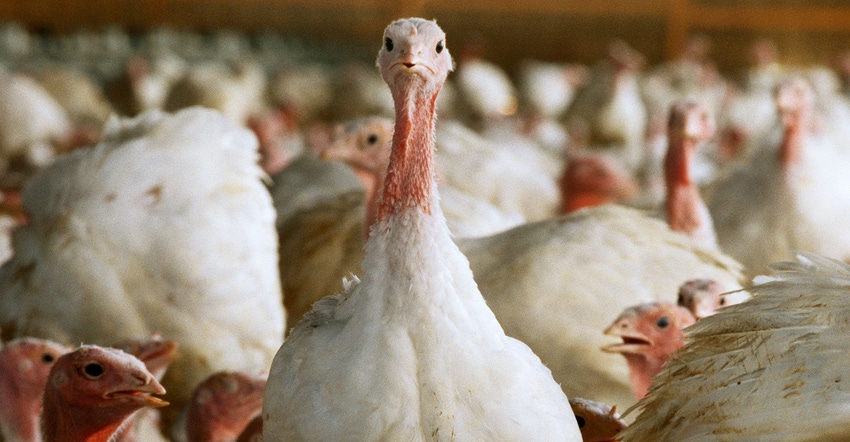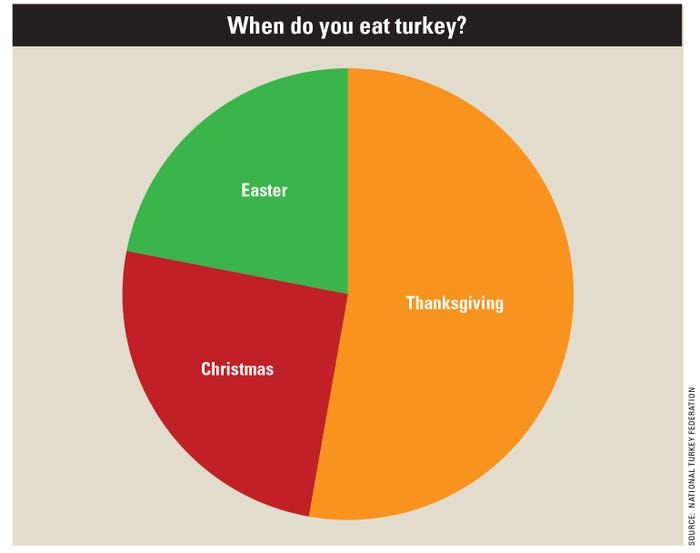
Missouri has turkeys. In fact, the state moved up a spot in 2019 to rank fifth in the nation for turkey production, according to the USDA National Agricultural Statistics Service.
Last year, the state’s turkey growers raised 16.5 million birds, contributing to the 229 million birds across the country. All total, nationally, turkey growers produced 5.26 billion pounds of turkey.
David Anderson, Texas A&M AgriLife Extension economist, warns that prices of turkeys are up this year, and production is down because of COVID-19. He finds overall turkey production is down 2.7% for 2020 so far compared to 2019. In addition, turkeys in cold storage, which are typically stocked up for the holiday rush, were down 11.5%.
Holiday production
Minnesota is the leading turkey-producing state, with 40 million birds produced in 2019. North Carolina ranked second, with 31 million, and Arkansas is a close third, with 30 million.
U.S. turkey production steadily increased until reaching a record annual high in 2008 at 6.25 billion pounds. Since then, production plateaued at just under 6 billion pounds.

But all these turkeys will not be consumed this holiday week. The National Turkey Federation reports that 46 million turkeys will take center stage on the Thanksgiving dinner table. Another 22 million will be eaten at Christmas, and 19 million at Easter.
In the U.S., people consume about 16 pounds of turkey annually. That number has not moved up or down dramatically in the past 10 years. These consumers are not only buying whole birds for the holidays, but also consuming more turkey throughout the year.
Cost of holiday bird
Anderson contends that lower supplies have driven prices up this year. He reports wholesale turkey prices are 19% higher compared to last year because of tighter supplies. That is for both toms, which weigh from 16 to 24 pounds, and hens, ranging from 8 to 16 pounds.
Current average prices are about $1.16 per pound, almost 20 cents per pound above last year.
This year, the USDA Economic Research Service reported an increase in the cost of turkeys. Its data shows prices for frozen whole turkey hens at $1.06 per pound, up from 89 cents per pound in 2019.
Last year, wholesale turkey prices were 20% below the five-year average. Anderson adds that some retailers may continue the practice of running specials on turkeys to draw shoppers.
Still, COVID-19 and state restrictions may limit the number of turkeys purchased for large gatherings.
The Food Industry Association and marketing consultants The Hartman Group completed a survey that showed 33% of Americans will have fewer people at Thanksgiving celebrations. About 26% of respondents said they would avoid long-distance travel.
Still, whether traveling or staying at home, many households will gather around the holiday table, and a turkey will be the centerpiece.
Read more about:
Covid 19About the Author(s)
You May Also Like






